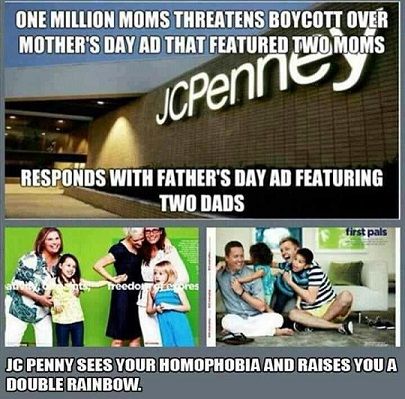Primatologists discovered that the size of a primate’s brain determines the size of the social groups that primate forms. In other words, the bigger the brain, the bigger the society they form. An anthropologist named Robin Dunbar says that the same is true for you and me.
Author David Wong explains it this way. Imagine a cute little monkey. He suggests that you imagine that he’s dressed up like a pirate and that you have all kinds of monkey pirate adventures.

I feel compelled to admit that the pirate outfit and accompanying adventures are fun, but probably not necessary for this explanation.
He also says that you should name him Slappy and that you should image how much you love and enjoy Slappy’s company. And that I do want you to do. Because I want you to realize how sad you would be if Slappy died.
Now imagine that you get four more monkeys. I won’t use the names that Wong suggests, so let’s call them Matthew, Mark, Luke and John. Imagine that Matthew is affectionate, Mark is aggressive, Luke is quiet, and John loves sitting on the top of the grandfather clock and screaming. But they’re all your pets, and you love them.
Now imagine that you get one hundred more monkeys. Wong writes, “Not so easy now, is it? So how many monkeys would you have to own before you couldn't remember their names? At what point, in your mind, do your beloved pets become just a faceless sea of monkey?” Well, if Dunbar is correct, the answer is about 150 monkeys.
That’s all our brains can handle. About 150.
In his book, This Book Is Full of Spiders, Wong describes the problem this way:
“…everything we do requires cooperation in groups larger than a hundred and fifty. Governments. Corporations. Society as a whole. And we are physically incapable of handling it. So every moment of the day we urgently try to separate everyone on earth into two groups—those inside the sphere of sympathy and those outside. Black verses white, liberal verses conservative, Muslim verses Christian, Lakers fan versus Celtics fan. With us, or against us. Infected verses clean. We simplify tens of millions of individuals down into simplistic stereotypes, so that they hold the space of only one individual in our limited available memory slots…”Now, this problem is addressed all over the place in Judaism and Christianity and probably every other religion in the world. But I’m a Christian, so I’m going to focus on two places that Jesus addresses it. If you want to get into the text yourself, you can find these passages in Luke 4:16-30 and Matthew 25:31-46. So, after Jesus was Baptized he was driven into the wilderness by the Holy Spirit. He overcame temptation out there and then, still full of the Spirit, he began to preach and teach all around Galilee.
One day he came home to Nazareth and went to the synagogue there on the Sabbath. He stood up and read a passage from the prophet Isaiah, “The Spirit of the Lord is upon me, because he has anointed me to bring good news to the poor. He has sent me to proclaim release to the captives and recovery of sight to the blind, to let the oppressed go free, to proclaim the year of the Lord’s favor.”
But he chose to end the quote before he got to the part where Isaiah talks about the day of the vengeance of the Lord, and he rolled up the scroll, gave it back to the attendant, and sat down.
Then he began to say to them, “Today this scripture has been fulfilled in your hearing.” All spoke well of him and were amazed at the gracious words that came from his mouth. They said, “Is not this Joseph's son?”
I think that Jesus was trying to make a point when he read that passage from Isaiah. Or rather, I believe that he was trying to make a point when he stopped in the middle of a verse. The full verse is, “…to proclaim the year of the Lord’s favor, and the day of vengeance of our God…” I think that Jesus was trying to steer the people away from the path of vengeance.
But I also believe that as soon as Jesus said, “The Spirit of the Lord is upon me,” the people remembered the whole passage and assumed that Jesus was going to the same place—the place where the people get their vengeance over their enemies. Payback time.
And Jesus saw how the people approved of him and were amazed by him and… he kept talking. “Doubtless you will quote to me this proverb, ‘Doctor, cure yourself!’ And you will say, ‘Do here also in your hometown the things that we have heard you did at Capernaum.’’ And he said, ‘Truly I tell you, no prophet is accepted in the prophet's hometown. But the truth is, there were many widows in Israel in the time of Elijah, when the heaven was shut up three years and six months, and there was a severe famine over all the land; yet Elijah was sent to none of them except to a widow at Zarephath in Sidon. There were also many lepers in Israel in the time of the prophet Elisha, and none of them was cleansed except Naaman the Syrian.”
What Jesus is doing here is pointing out that within their own scriptures there are examples of God caring for people outside of the Jewish Monkeysphere. Sidon and Syria were definitely "Them" with a capital "T" for the folk Jesus was speaking to. Unfortunately, the crowd was not swayed. In fact, they were predictably outraged, became violent and tried to toss Jesus off a cliff! I believe that Jesus gives us the answer our limited brains need later in his ministry, when he told this parable:
“When the Son of Man comes in his glory, and all the angels with him, then he will sit on the throne of his glory. All the nations will be gathered before him, and he will separate people one from another as a shepherd separates the sheep from the goats, and he will put the sheep at his right hand and the goats at the left.I don’t know about you, but I struggle with my monkey brain every day. I catch myself trying to simplify whole groups of people down into simplistic stereotypes to hold the space of only one individual in my limited available memory slots.
Then the king will say to those at his right hand, ‘Come, you that are blessed by my Father, inherit the kingdom prepared for you from the foundation of the world; for I was hungry and you gave me food, I was thirsty and you gave me something to drink, I was a stranger and you welcomed me, I was naked and you gave me clothing, I was sick and you took care of me, I was in prison and you visited me.’
Then the righteous will answer him, ‘Lord, when was it that we saw you hungry and gave you food, or thirsty and gave you something to drink? And when was it that we saw you a stranger and welcomed you, or naked and gave you clothing? And when was it that we saw you sick or in prison and visited you?’
And the king will answer them, ‘Truly I tell you, just as you did it to one of the least of these who are members of my family, you did it to me…’”
And sometimes those stereotypes aren’t very nice. And when that happens, I try to remember where Jesus stopped speaking, rolled up the scroll and sat down. I try to remember the widow at Zarephath in Sidon. I try to remember Naaman the Syrian. I try to remember that if I need to simplify things for my poor monkey brain, all I need to do is replace all of those tens of millions of individuals with one person: the King from the parable: Jesus.
